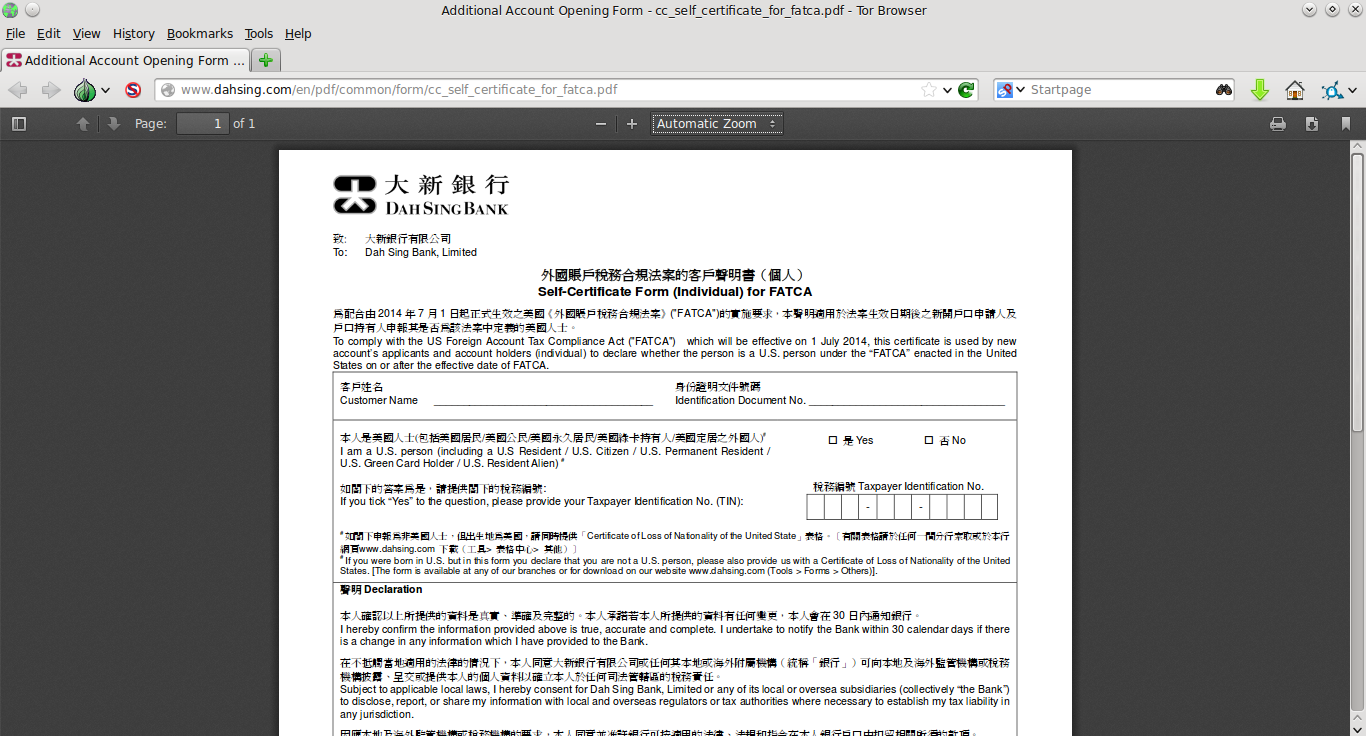Update: please see our two newer posts (9 January and 10 January) with even more proof that China does not have citizenship-based taxation.
Update 2: Chinese tax expert Bernard Schneider of the Queen Mary University of London School of Law has stated that The New York Times article is incorrect and that China does not tax non-resident Chinese citizens on their non-China income. Please see his full comments to Virginia La Torre Jeker, tax lawyer based in Dubai, reported in her column on AngloINFO (in the update at the bottom). Professor Allison Christians also notes that other experts she knows have written to her to refute the NYT article. We are still awaiting a correction from the NYT.
In an article on Wednesday (to which I was alerted by kermitzii in our comments section), The New York Times makes the following assertion:
China Wants Taxes Paid by Citizens Living Afar
… national and municipal tax agencies in China are quietly beginning to enforce a little-known and widely ignored regulation: Citizens and companies must pay domestic taxes on their entire worldwide incomes, not just on what they earn in China.
The nascent campaign this winter puts China on the same side as the United States in a global debate over whether taxation should be primarily national or global. On the other side of the issue are European nations, Japan, Australia and Canada, all of which tax people within their borders but exempt most expatriates and overseas subsidiaries from paying income taxes in their home countries.
The bolded text, however, is incorrect. Eritrea is the only country left “on the same side” as the United States in this debate. China, just like Japan, Australia, Canada, and European countries in general, taxes resident individuals on their entire worldwide income, and non-resident individuals on their domestic income. This is clear even from a cursory reading of China’s Individual Income Tax Law: it’s in the very first article.
China’s method of determining an individual’s tax residence is not particularly unusual. It does not look to citizenship whatsoever, but instead relies mainly on household registration and the location of one’s family members and economic interests; the regulations are similar to (though less detailed than) the “sufficient ties” test in the UK or the “residential ties” test in Canada. Nor is this definition in flux: it has remained basically unchanged for the past two decades. The only real difference is that the bureaucracy in China is less responsive and harder to navigate.
After the jump I provide translations of the relevant Chinese laws and regulations regarding this point, as well as a quote from a book by two actual Chinese tax law professors.






